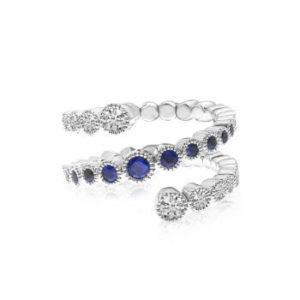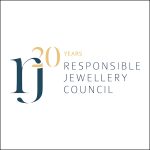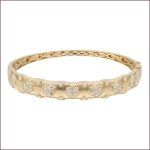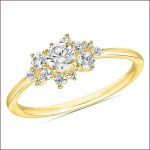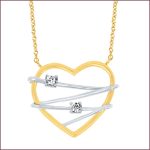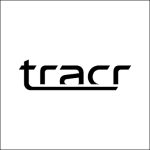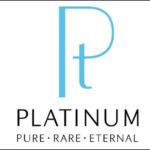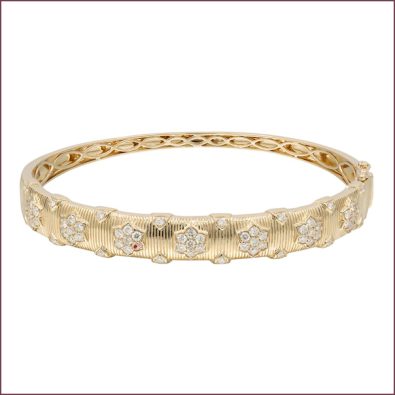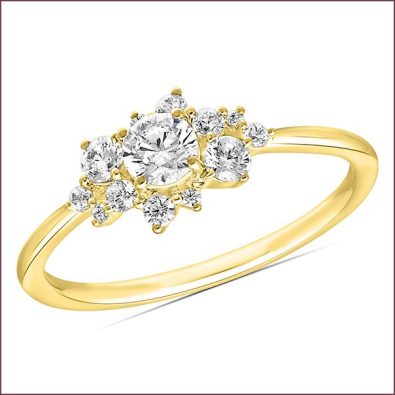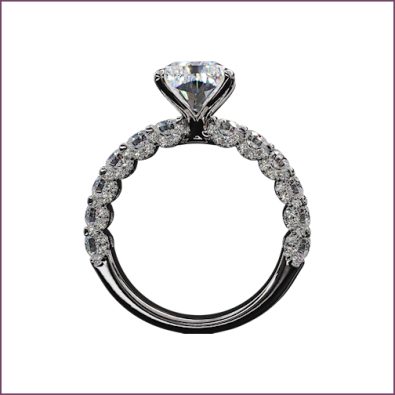Color: It’s Personal
The global fashion accessories market is projected to grow at the rate of 6.5% during the forecast period 2018 to 2023, reports Mordor Intelligence. According to the India-based global market research firm, the fashion industry is highly competitive and requires continuous innovation and development, especially in product design, and digital marketing and media technology.
There is increasing demand for different fashion accessories, most notably eyewear, footwear and handbags,  attributed to the rising consumer preference towards high-quality, branded fashion accessories worldwide, reports Mordor, revealing in its research that e-commerce is really pushing trends in this segment.
attributed to the rising consumer preference towards high-quality, branded fashion accessories worldwide, reports Mordor, revealing in its research that e-commerce is really pushing trends in this segment.
Women shop for every type of accessory up to six times a year, except for fine jewelry, says Marty Hurwitz, CEO of the Austin, Texas-based fine jewelry market research firm MVI. Consumer reports cite women on average buy four pairs of shoes a year, and a handbag or two a season. Even eyewear has become more of an accessory, experiencing explosive growth with the likes of e-tailers, such as Warby Parker and Zenni Optical, offering affordable products sent to your door.
Hurwitz sees a big crisis in jewelry inventory that’s stale and lacks diversity in color, style and price points. MVI research has found that women, especially the younger generations, can’t find what they want at traditional retail jewelers — and what they want is more color to go with their outfits. According to over 1,000 women surveyed last year, aged 25-40 with a total household income of $75,000+, traditional jewelry stores are not typically warm and experiential, nor include young women on staff. So they’ve been giving the business to department stores and non-traditional spaces.
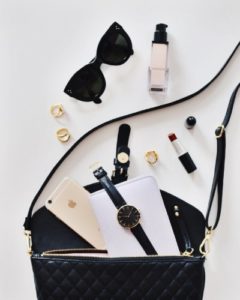 What Women Want
What Women Want
Hurwitz encourages jewelers to shift from being gemologists with a focus on the diamond engagement ring sale to fashion experts that advise women throughout the year on how to build their jewelry wardrobe.
“You can see all the signs of a demographic segment that will be spending for themselves, and for gifts, in increasing numbers and price points,” says MVI President Liz Chatelain. “Luxury brands like Tiffany, Marriott and Jimmy Choo are already seeing strong penetration based on their recent video content marketing efforts and others seeking an answer to the millennial consuming puzzle should become more aggressive with their content marketing to young self-purchasing women.”
MVI found that more than half (51 percent) of the women surveyed say they are the primary buyer of fine jewelry in their households. In fact, nearly 60% said they were prompted to make their last fine jewelry purchase “just because”. Luxury marketers have begun to evolve their messaging surrounding jewelry, but as Millennials become a bigger consumer base for high-end goods, it will become even more important to appeal to women.
Paola De Luca, founder and creative director for the Italian luxury marketing firm, The Futurist, publisher of TrendVision, reminds jewelers not to overlook women, 40-55 and even up to 60, Gen Xers, third largest generation in America following Millennials and Boomers. These woman are established in the workforce/career, making their own money, and not afraid to spend it on themselves.
The sweet spot, says Hurwitz, is for trendy, colorful jewelry that retails between $100 and $1,000.
Bright Colors Trending
With Living Coral the Pantone Color of the Year for 2019, the market can expect brighter colors to be more sought 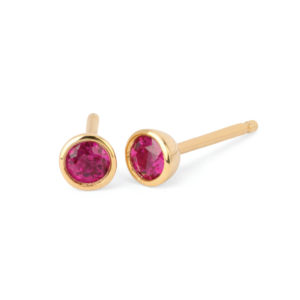 after, reports Theresa Namie, Merchandise Manager for Ostbye in Minneapolis, Minnesota. She notices a shift from pastels to more vibrant, jewel tones (think ruby, emerald and sapphire). “I would expect an uptick in color-treated diamonds, as well. These gems will be most often set in rose and yellow gold in 2019. We’re already seeing a rise in ruby sales, and as always, we will do very well with our birthstone collections.”
after, reports Theresa Namie, Merchandise Manager for Ostbye in Minneapolis, Minnesota. She notices a shift from pastels to more vibrant, jewel tones (think ruby, emerald and sapphire). “I would expect an uptick in color-treated diamonds, as well. These gems will be most often set in rose and yellow gold in 2019. We’re already seeing a rise in ruby sales, and as always, we will do very well with our birthstone collections.”
Namie advocates jewelers have a few styles to offer in birthstone jewelry. “It pleases both the traditional customer when presented in the more classic designs, and appeals to the modern woman who likes bezels and stackables, making a statement of fashion and heart.”
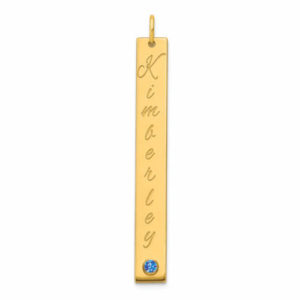 Birthstones have become a huge part of the gemstone category, go-to design elements that can personalize/customize any piece — added to monograms, signet rings, heart pendants, and signature necklaces, says Karen Crowe, Merchandising/Marketing for Quality Gold, Fairfield, Ohio. She cites bridal one category that has really embraced color, with Brides magazine declaring color as extremely popular in engagement rings in its December issue.
Birthstones have become a huge part of the gemstone category, go-to design elements that can personalize/customize any piece — added to monograms, signet rings, heart pendants, and signature necklaces, says Karen Crowe, Merchandising/Marketing for Quality Gold, Fairfield, Ohio. She cites bridal one category that has really embraced color, with Brides magazine declaring color as extremely popular in engagement rings in its December issue.
Beyond the success of stackable gem-set bands, she sees the impact of color most evident in the increase of requests for gem centers in engagement rings. This has inspired Quality Gold’s latest collection, due out this spring, called Blooming Bridal, with colored stones like sapphire and morganite.
Allison Peck for the New York City based Color Merchants, notes that the color versatility of the stones, as well as their meanings and timeless appeal — not to mention the range of price points — make gemstone jewelry the perfect accessory and keepsake.
Social media has fueled women’s desire for gemstones and as female self-purchases continue to rise, colored gemstones will continue to offer something unique that fits their style and energy, says Amanda Gizzi, Director of Public Relations & Special Events for JA. “With so many gems available, there is always something new to learn and explore.” Instagram has been an especially popular platform for fine jewelry and gems.
